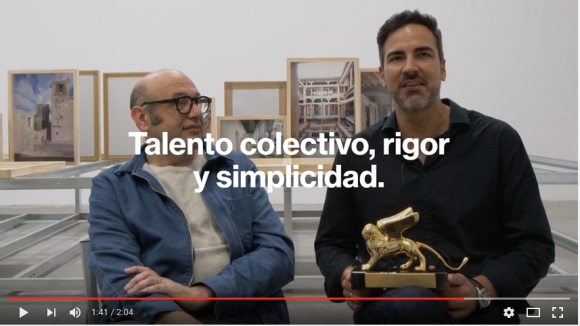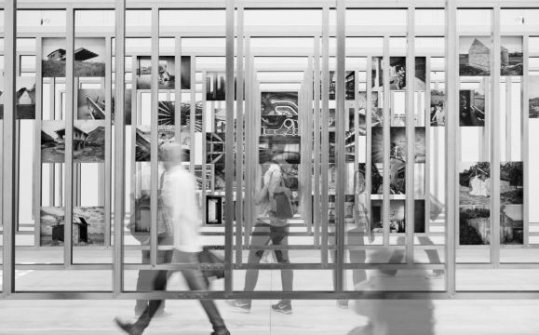Spanish Pavilion
During the past period of economic growth in Spain construction became the main driving force behind the economy. Today we find the built presence and unfinished remains of the largest constructional undertaking in history, which left behind an awkward layout and large partially built and unconsolidated volumes.
With the exhibition ‘Unfinished’ the curators of the Spanish pavilion, Iñaqui Carnicero and Carlos Quintáns take a look at unfinished architecture in order to discover virtues that can be turned into design strategies. ‘Unfinished’ sets out to explore creative speculations on converting a past condition into a positive contemporary action.
In order to show the largest possible number of architectural designs related to this theme, the Spanish Pavilion for the 2016 Venice Biennale initially launched a call for selecting the built works to be shown under one of the following categories.
INFILL without facade
ELEVATIONS without land
CONSOLIDATE without autonomy
PATTERNS without deadlines
STRUCTURES without cladding
DEMOLITIONS without material
GENERIC without program
ADAPTABLE without permanences
REAPROPRIATION without new spaces
RAW MATERIAL without finishing LOW COST without money
COLLABORATIVE without authorship
SUBVERSIVE without regulations
In addition to the process for selecting built works, a design competition has also been launched for new projects in connection with the ‘Unfinished’ theme explored by the Spanish Pavilion for the 2016 Venice Biennale.
International Section
AC/E supports the participation of the Spanish Architecture Studios:
Alonso de Santos Estudio (Madrid, España): Francisco Alonso de Santos
Barozzi Veiga (Barcelona, España): Alberto Veiga; Fabrizio Barozzi
Batlle i Roig Arquitectes (Barcelona, España): Enric Batlle; Joan Roig
Cadaval & Solà-Morales (Barcelona, España): Eduardo Cadaval; Clara Solà-Morales
Ensamble Studio (Madrid, España): Antón García-Abril; Débora Mesa Molina
Estudi d’Arquitectura Toni Gironès (Barcelona, España): Toni Gironès
José María Sánchez García Arquitectos (Madrid, España)
Recetas Urbanas (Sevilla, España): Santiago Cirugeda.






